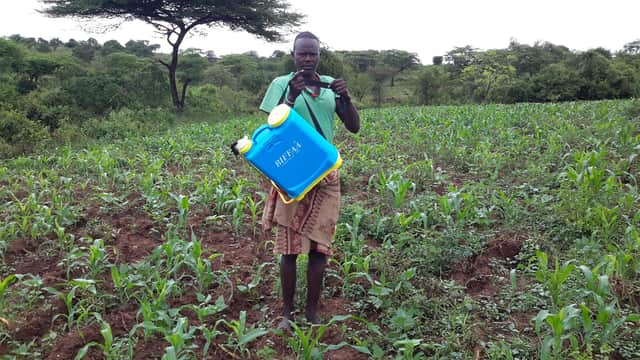Desert locusts plague East Africa on scale not seen for decades - Sally Foster-Fulton


Desert locusts on a scale not seen for decades have been causing havoc in Ethiopia and other countries in East Africa throughout 2020. There has been limited media coverage so it’s not surprising so many of us remain unaware of the humanitarian disaster in the making here. We’ve been pre-occupied with a global pandemic and the impact it’s had on our lives in Scotland. But then so has Ethiopia, in addition to plagues of locusts and now conflict.
The locusts have been particularly bad this year because of the erratic weather conditions: long spells of dry weather and then heavy rains and winds. Ideal weather for locusts to breed, swarm and then feast. Some might say the locusts are a good example of what climate change looks like.
Advertisement
Hide AdAdvertisement
Hide AdFarmer Bodo Ayiso says the locusts were an unexpected challenge this year: “I know what drought or flooding can do. But I have never seen such a devastating plague before. We were ready to harvest our farm when locust swarms descended on our village. They destroyed everything within a few days and only left dust behind. The swarms devastated range lands and the vegetation. Even the bees left.”


But there’s some good news, that offers hope. Christian Aid’s work in southern Ethiopia, supported with funds from the Scottish Government’s Humanitarian Emergency Fund, has made a positive impact on attempts to deal with the locust threat. This quick response has meant that, using a two-pronged approach, the infestation has been controlled through the spraying of insecticides and then emergency seed distribution to communities who lost crops. Lush green crops of maize and sorghum are growing tall and strong in the autumn rains ready to be harvested. Bodo is grateful to Christian Aid’s support through these difficult months.
But and this is a significant but, there are fears the locusts could return to this area of Ethiopia in the new year. Like coronavirus, locusts don’t respect borders – they move freely and are already swarming again in neighbouring Somalia. And predictions of drought conditions for the start of 2021 will not only aid the locusts but put a further strain on a country that already faces multiple challenges and pockets of extreme poverty. Added to this a conflict in the north, which has triggered mass displacement, with people fleeing into Sudan or moving south.
It’s a complex and concerning picture. So as we approach our uncertain Christmas please keep our global neighbours in Ethiopia in your thoughts and prayers. And consider donating to our Christmas Appeal as an active response in this season of goodwill to all women, men and children. It will make a difference.
Sally Foster-Fulton, Head of Christian Aid Scotland
Comments
Want to join the conversation? Please or to comment on this article.